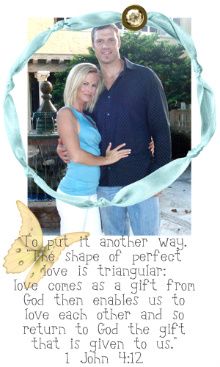Letting Your Life Speak
On the importance of listening deeply to find your true vocation.
Excerpted from "Let Your Life Speak: Listening for the Voice of Vocation" by Parker J. Palmer
I was in my early thirties when I began to wake up to questions about my vocation. By all appearances, things were going well, but the soul does not put much stock in appearances. Seeking a path more purposeful than accumulating wealth, holding power, winning at competition, or securing a career, I had started to understand that is indeed possible to live a life other than one's own. Fearful that I was doing just that, I would snap awake in the middle of the night and stare for long hours at the ceiling.
"True self, when violated, will always resist us, sometimes at great cost."
Then I ran across the old Quaker saying, "Let your life speak." I found these words encouraging, and I thought they meant: "Let the highest truths and values guide you." I lined up the loftiest ideals I could find and set out to achieve them. The results were rarely admirable, often laughable, and sometimes grotesque. But always they were unreal, a distortion of my true self--as must be the case when one lives from the outside in, not the inside out. I had simply found a "noble" way to live a life that was not my own.
Today, some thirty years later, "Let life speak" means something else to me, a meaning faithful both to the ambiguity of those words and to the complexity of my own experience: "Before you tell your life what you intend to do with it, listen for what it intends to do with you."
My youthful understanding of "Let your life speak" led me to conjure up the highest values I could imagine and then try to conform my life to them. There may be moments in life when we are so unformed that we need to use values like an exoskeleton to keep us from collapsing. But something is very wrong if such moments recur often in adulthood. Trying to live by an abstract norm, will invariably fail--and may even do great damage.
"Before I can tell my life what I want to do with it, I must listen to my life telling me who I am."
Vocation, the way I was seeking it, becomes an act of will, a grim determination that one's life will go this way or that whether it wants to or not. If the self is sin-ridden and will bow to truth and goodness only under duress, that approach to vocation makes sense. But if the self seeks not pathology but wholeness, then the willful pursuit of vocation is an act of violence toward ourselves--violence in the name of a vision. True self, when violated, will always resist us, sometimes at great cost, holding our lives in check until we honor its truth.
Vocation does not come from willfulness. It comes from listening. I must listen to my life and try to understand what is truly about--quite apart from what I would like it to be about--or my life will never represent anything real in the world, no matter how earnest my intentions.
That insight is hidden in the word vocation itself, which is rooted in the Latin for "voice." Vocation does not mean a goal that I pursue. It means a calling that I hear. Before I can tell my life what I want to do with it, I must listen to my life telling me who I am.
Behind this understanding of vocation is a truth that the ego does not want to hear because it threatens the ego's turf: Everyone has a life that is different from the "I" of daily consciousness, a life that is trying to live through the "I" who is its vessel. It takes time and hard experience to sense the difference between the two--to sense that running beneath the surface of the experience I call my life, there is a deeper and truer life waiting to be acknowledged. That fact alone makes "listen to your life" difficult counsel to follow.
If I am to let my life speak things I want to hear, things I would gladly tell others, I must also let it speak things I do not want to hear and would never tell anyone else! My life is not only about my strengths and virtues, it is also about my liabilities and my limits, my trespasses and my shadow. An inevitable though often ignored dimension of the quest for "wholeness" is that we must embrace what we dislike or find shameful about ourselves as well as what we are confident and proud of. That is why the poet says, "Ask me mistakes I have made."
"The soul speaks its truth only under quiet, inviting, and trustworthy conditions."
I do not feel despondent about my mistakes, any more than the poet does, though I grieve the pain they have sometimes caused others. Our lives are "experiments with truth" (to borrow the subtitle of Gandhi's autobiography), and in an experiment, negative results are at least as important as success. I have no idea how I would have learned the truth about myself and my calling without the mistakes I have made.
How we are to listen to our lives is a question worth exploring. In our culture, we tend to gather information in ways that do not work very well when the source is the human soul. The soul is not responsive to subpoenas or cross-examinations. At best it will stand in the dock only long enough to plead the Fifth Amendment. At worst it will jump bail and never be heard from again. The soul speaks its truth only under quiet, inviting, and trustworthy conditions.
The soul is like a wild animal--tough, resilient, savvy, self-sufficient, and yet exceedingly shy. If we want to see a wild animal, the last thing we should do is to go crashing through the woods, shouting for the creature to come out. But if we are willing to walk quietly into the woods and sit silently for an hour or two at the base of a tree, the creature we are waiting for may well merge, and out of the corner of an eye we will catch a glimpse of the precious wildness we seek.













